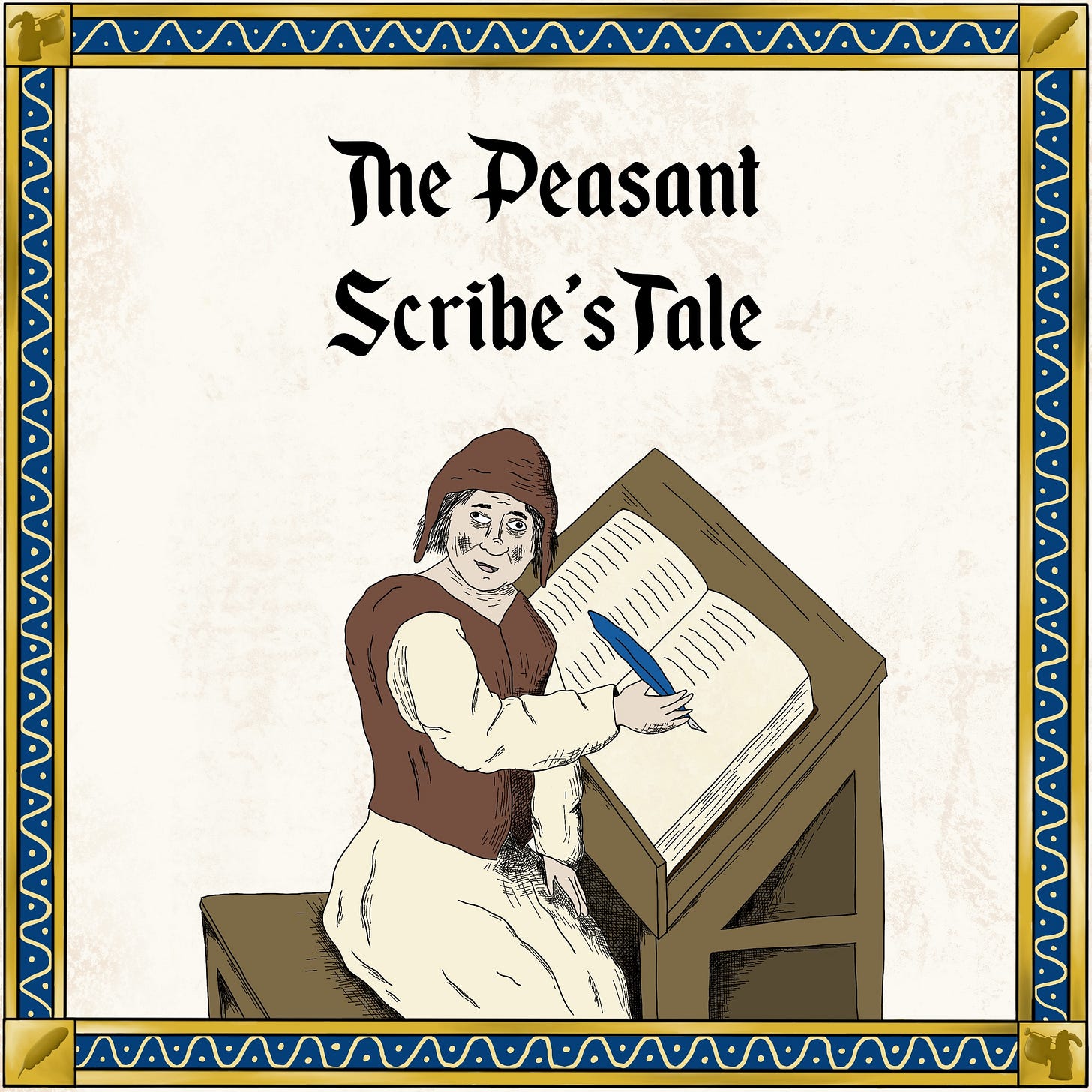The Peasant Scribe’s Tale
A short story
“M’lord, I have decided what I want to do with my life,” said the peasant to his lord. “I want to be a writer.”
“A writer?” said the master. “What for?”
“Well, this whole ‘life of unending toil’ thing is great and all, but I think writing is my true calling,” said the peasant.
“Very well,” said the master. “And thou seekest mine advice in such matters?”
“Yes , lord.”
“Very well. First things first, if thou wants to become a successful writer, it helps to be nobility,” said the master. “Dost thou happen to have any noble blood? Maybe a bastard child somewhere on the family tree?”
“Nay, m’lord,” said the peasant. “Peasant stock through and through.”
“No matter. In that case, thou must obtain an education,” said the master. “But not just any education. Thou must be educated at one of the most elite Academies in all the land. A shire college won’t do. Just make sure not to waste thy time learning. The important thing to focus on is networking. Find all the wealthiest and best connected people and befriend them. That’s the true purpose of an education.”
“But lord, I’m merely a peasant. I could never afford such an education, never mind that I lack all the prerequisites.”
“Hmm, good point,” said the master. “‘Tis a problem, but no need to give in to despair yet! If thou aren’t nobility and can’t get an elite education, thou at least must move to The City. The City is where all of the best writers live, and thou can network with them there. Thou wilt never land a writing job if thou dost not live in The City, preferably in a posh neighbourhood where the successful writers hang out.”
“But m’lord,” said the peasant, “I’m but a humble farmer with nary a penny to my name. How am I to pay rent in a place of such extravagant luxury?”
“Oh, yeah, I forgot to tell you that you need to have wealthy parents to pay your rent for the first two-to-five years,” said the master. “And they’ll probably need to cover some miscellaneous expenses, too. Thou wilt need to start out as an unpaid intern, so rich parents is a must. Thou at least hast rich parents, right?”
“Nay, m’lord. Thou had my parents hanged after the last revolt,” said the peasant.
“Oh, that’s right. Sorry about that,” said the master. “So being noble, an elite education, and a posh apartment in The City from which to network with other writers are out of the question. Maybe let’s start small. Try getting a job at the local newspaper, or maybe as an apprentice to the Town Crier?”
“I have considered it, m’lord,” said the peasant. “But thou dost remember, I owe fealty to thee. It specifically says in our feudal contract that I’m not allowed to work for anyone else. I have not the funds to buy out of our contract. If I were simply to up and leave, my family would starve.”
“Of course, yes, and I would certainly hunt thee down for breaching our feudal contract,” said the master. “Nothing personal. Just upholding my end of the deal.”
“I totally understand,” said the peasant.
“‘Tis a real predicament,” said the master. “No noble blood, no money or prerequisites for an elite education, no rich parents to pay thine opulent rent in The City whence thou can network with other writers and land an unpaid internship at one of the major pamphlet publishers, and no way to get out of thy current feudal contract and get a new job at the local newspaper.”
The master thought for a moment and tapped his chin with his forefinger. He was not one to quit a problem before an adequate solution was found. But neither had he ever met a peasant so determined to do something with his life aside from the normal peasant things.
Suddenly, it dawned on him: that long-forgotten refuge of many a scrivener that had come before, that timeworn scriptorium wherein so many peasant scribes had honed their craft after a long day of toil in the fields.
“Maybe start a blog?”



